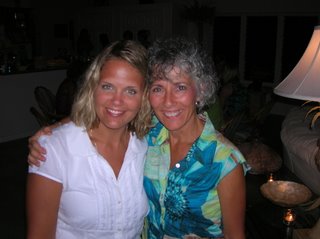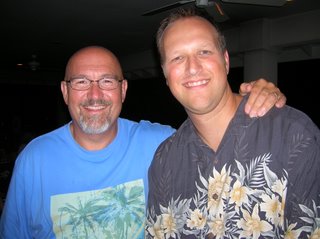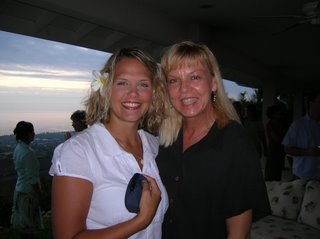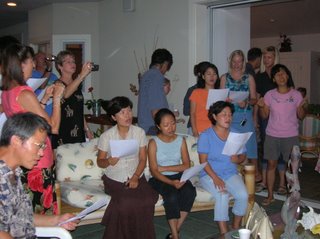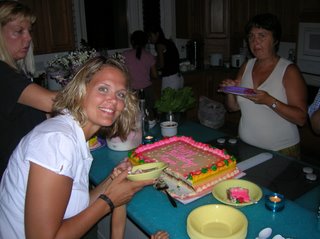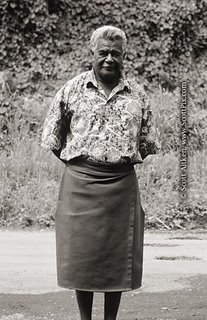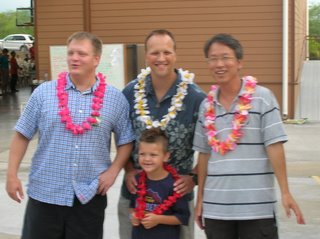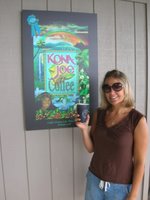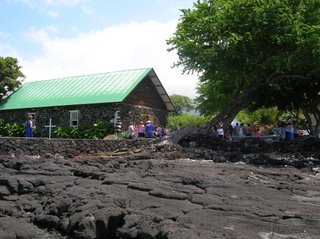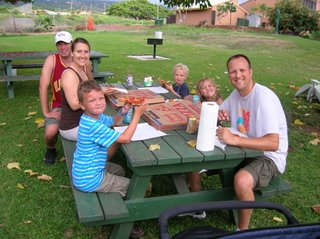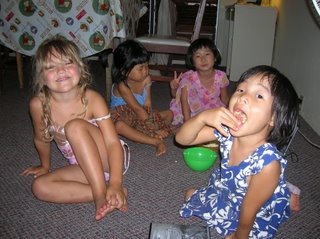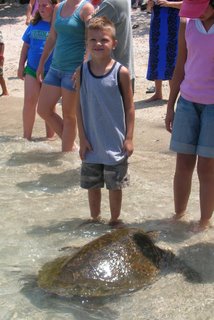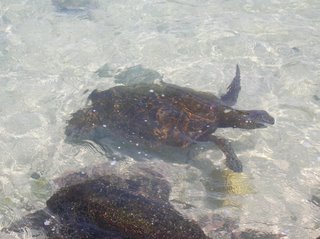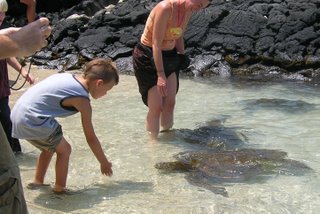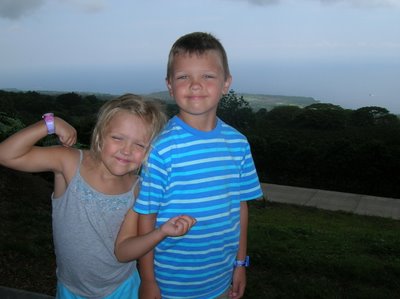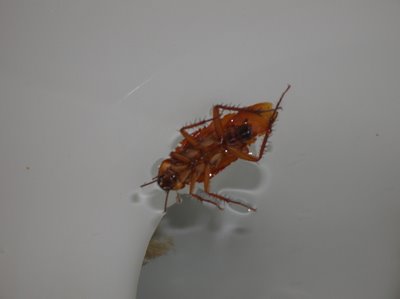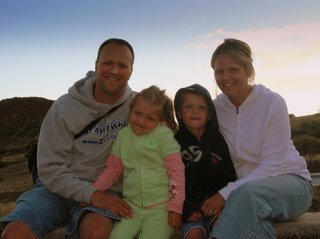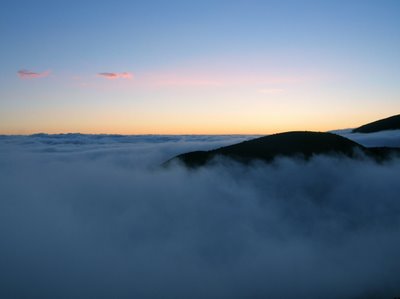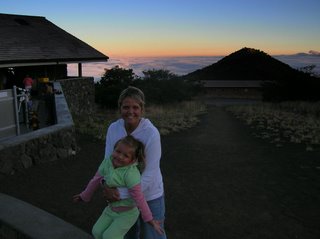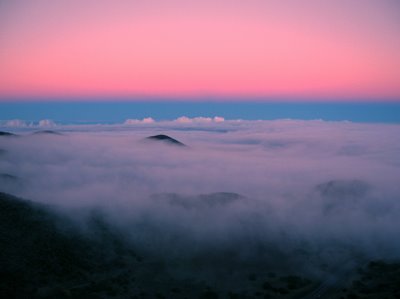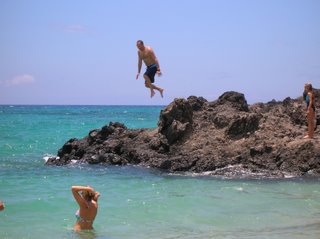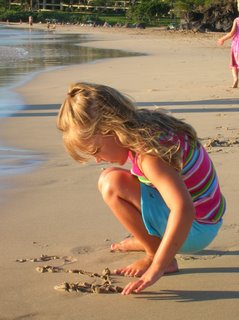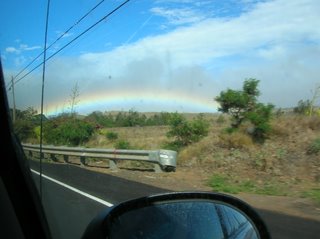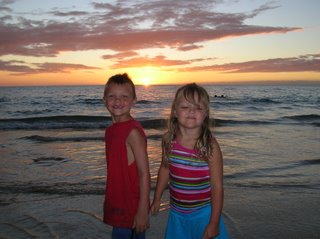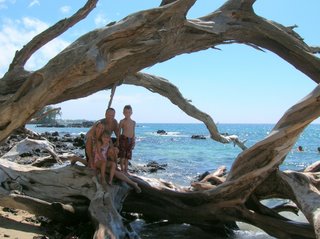Good morning!
We have just finished week 6 and are halfway through our 3-month training. It has been a very busy and tiring week so we are excited to just relax this weekend.
The big news is that we have a decision on where we are sending the outreach teams from our group. This will be a two-month outreach from the end of September throught the end of November. There will actually be three teams going from our group. One team will be going to Belo Horizonte, Brazil to help with the homeless street children there and then up the Amazon to help some of the Amazon tribes. See
here for a book on the work that is going on with Brazil's forgotten street children.
Another smaller team will be heading to Switzerland and France to assist the YWAM bases there with the work they are doing mainly in France. We seriously considered going with this team but determined that the travel and the work would be very tough on the kids.
So, our family will be going with a team to...(wait for it)...Fiji! We will begin working this week on specific strategizing and planning for the specific things we will be doing there. It is likely that I will work with some of the other business guys in our team to teach and assist some of the people in starting their own micro-businesses. Angie will likely be able to use her nursing skills and the kids will be able to help with some children's ministries. There is a possibility we may travel to some of the outer islands as well. This would be very interesting as many of the people in the outer islands live fairly primitively with no running water or electricity. Probably the highlight for most of my buddies back home, and for which I'm sure I will receive grief for many years to come, is that the men typically wear what are called sulus. This is nothing more than a "man-skirt." I'm sure Angie will be sure to take lots of pictures! We will share more details as we learn them. Here is a brief primer on Fiji...
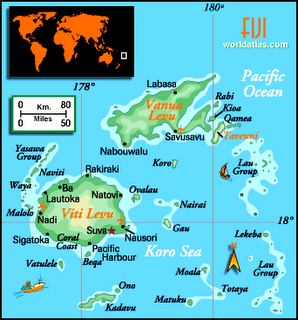
Fiji consists of 322 islands, of which 110 are inhabited, and 522 smaller islets. The two most important islands are
Viti Levu and
Vanua Levu. Viti Levu hosts the capital city of
Suva, and is home to nearly three quarters of the population. The islands are mountainous, with peaks up to 1,300 metres (4,250
ft), and covered with tropical forests. Other important towns include
Nadi (the location of the international airport), and
Lautoka (this is where we will likely stay). The main towns on
Vanua Levu are
Labasa and
Savusavu. Other islands and island groups include
Taveuni and
Kadavu (the third and fourth largest islands respectively), the
Mamanuca Group (just outside Nadi) and
Yasawa Group, which are popular
tourist destinations, the
Lomaiviti Group, outside of Suva, and the remote
Lau Group.
The population of Fiji is mostly made up of native
Fijians, a people of mixed
Polynesian and
Melanesian ancestry (54.3%), and
Indo-Fijians (38.1%), descendants of
Indian contract labourers brought to the islands by the British in the 19th century. The percentage of the population of Indian descent has declined significantly over the last two decades because of emigration. About 1.2% are
Rotuman — natives of
Rotuma Island, whose culture has more in common with countries such as
Tonga or
Samoa than with the rest of Fiji. There are also small, but economically significant, groups of Europeans, Chinese, and other minorities. Relationships between ethnic Fijians and Indo-Fijians have often been strained, and the tension between the two communities has dominated politics in the islands for the past generation. The level of tension varies between different regions of the country.
Fijian society is very communal, with great importance attached to the family unit, the village, and the vanua (land). A hierarchy of chiefs presides over villages, clans, and tribes. Chiefly positions are hereditary; a deceased chief is invariably followed by a kinsman, though not necessarily his own son.
The traditional attire in Fiji was loin cloths for men and grass skirts for women. Skirts were short for single women, and long for married women, with girls wearing virgin locks before marriage. Most had the lower parts of their bodies decorated with
tattoos. Chiefs dressed more elaborately. Modern Fiji's national dress is the
sulu, which resembles a skirt (yeah baby!). It is commonly worn by both men and women. Many are elaborately decorated with patterns and designs. Many men, especially in urban areas, also have sulus tailored as part of their suit. Many will wear a shirt with a western-style collar, tie, and jacket, with a matching sulu and sandals. Even the
military uniforms have incorporated the sulu as part of their ceremonial dress.
Trousers are rarely worn by indigenous Fijian men.Women usually wear a multi-layered
Tapa cloth on formal occasions. A blouse made of cotton, silk, or satin, of often worn on top. On special occasions, women often wear a tapa sheath across the chest, rather than a blouse. On other occasions, women may be dressed in a
chamba, also known as a sulu I ra, a sulu with a specially crafted top.There are many regional variations throughout Fiji. Residents of the village of
Dama, in
Bua Province, wear finely woven mats called
kuta, made from a reed.Men of chiefly rank usually wear a piece of brown
masi around their arms or their waist. Chiefs may also decorate their hair with
sandalwood dust.
Though geographically
Melanesian, Fijian music is more
Polynesian in character. Nevertheless, Fijian folk styles are distinct in their fusion of
Polynesian and
Melanesian traditions. Folk music is dominated by vocal church music, as well as dances characterized by rich harmony and complex
percussion made from slit drums or natural materials.
Fiji, endowed with forest, mineral, and fish resources, is one of the more developed of the Pacific island economies, though still with a large subsistence sector. Fiji experienced a period of rapid growth in the 1960s and 70s but stagnated in the early 1980s. The coups of 1987 caused further contraction. Economic liberalisation in the years following the coup created a boom in the garment industry and a steady growth rate despite growing uncertainty of land tenure in the sugar industry. Urbanization and expansion in the service sector have contributed to recent
GDP growth. Sugar exports and a rapidly growing
tourist industry — with 430,800 tourists in 2003 and increasing in the subsequent years — are the major sources of foreign exchange. Sugar processing makes up one-third of industrial activity. Until recently, the tallest building in Fiji was the 14-story
Reserve Bank of Fiji Building in
Suva, which opened in 1984. As of November 2005, the 17 story
Suva Central commercial center is now the tallest building in Fiji.
We'll have more to share later!
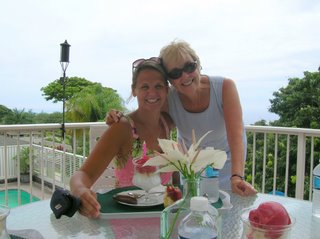 during their time here. Angie had always admired Darlene Cunningham after reading the book "Is That Really You God?" which tells the story of Loren and Darlene and the beginning years of YWAM. Not only did Angie get to hang out with them at their home, but Darlene fixed them lunch and brought out some ice cream and sang happy birthday to her. It was very memorable for Ang.
during their time here. Angie had always admired Darlene Cunningham after reading the book "Is That Really You God?" which tells the story of Loren and Darlene and the beginning years of YWAM. Not only did Angie get to hang out with them at their home, but Darlene fixed them lunch and brought out some ice cream and sang happy birthday to her. It was very memorable for Ang.
